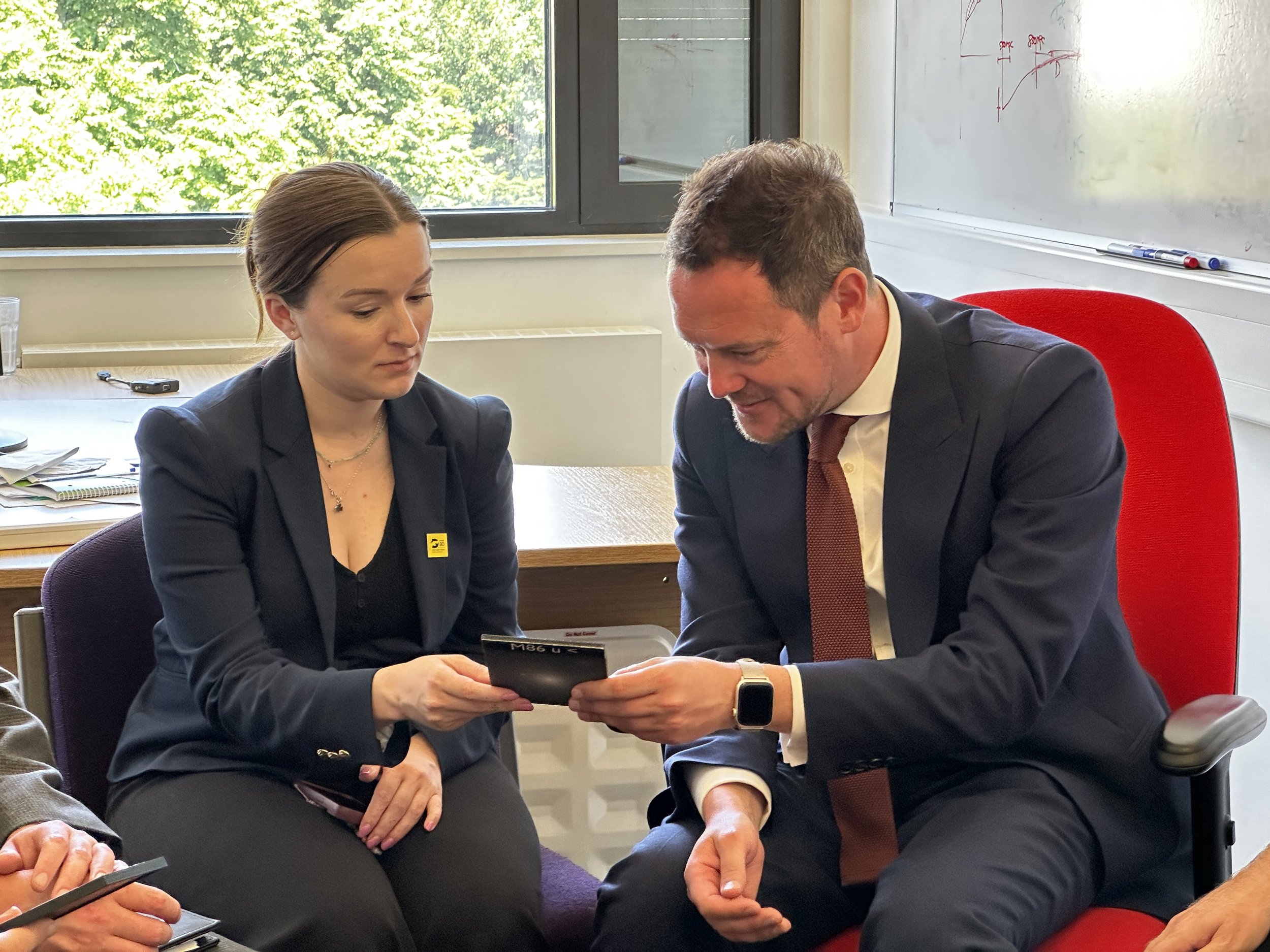Election candidate explores space at the University of Portsmouth
An election candidate got a personal introduction to some of our region’s world-class space facilities, expertise and research last week during a visit to the University of Portsmouth.
Stephen Morgan, the Labour candidate for Portsmouth South, toured the university’s facilities – including its pioneering Space Mission Incubator – and met staff from Space South Central and the Institute of Cosmology & Gravitation (ICG).
Stephen Morgan is introduced to Tactile Universe.
Professor David Bacon, Director of the ICG, began with an overview of the institute's work spanning astrophysics, observational cosmology, theoretical cosmology and gravitational waves.
This was followed by Andy Lundgren, a Professor of Astrophysics who specialises in gravitational waves, and Research Software Engineer, Dr Chris Pattison, sharing diverse, real-world examples of how ICG’s research helps understand and tackle issues here on Earth.
Among the highlighted projects was a collaboration with GB Row to assess pollution levels in Great Britain’s coastal waters, where technology usually used for space science is being used to measure marine noise pollution and create a ‘continuous map of sound’ around the UK. Coastal aquatic habitats are increasingly dominated by human-made noise, which can have a range of behavioural and physiological impacts on marine wildlife.
Further examples included how a cosmological image processing algorithm – usually used to detect deep space objects such as stars and galaxies – was used to improve Covid-19 health strategies, and how satellite data and mapping enabled the analysis of tsunami risks to Pacific islands.
The university has an extensive outreach programmes to inspire the next generation of space experts, and Associate Professor in Public Engagement and Outreach, Dr Jen Gupta, showcased its schools programme. Dr Nic Bonne introduced the award-winning Tactile Universe project which makes astrophysics accessible to visually-impaired students through tactile learning resources.
In the Space Mission Incubator – where students, academics and businesses can plan space projects from inception to launch – Director of the Space South Central Enterprise Network, Dr Louise Butt described the strategic importance of industry and academic collaborations, and how they are driving the region’s thriving space sector.
The Labour candidate’s visit was part of a series of tours offered to all political candidates standing in the Portsmouth South constituency.
Professor David Bacon said:
"It was a pleasure to welcome Stephen Morgan to the ICG, and to engage in a wide-ranging discussion about the relationships between schools, the environment, health and our space research."
Dr Louise Butt said:
“Our partner universities of Portsmouth, Southampton and Surrey play a crucial role in space research, education and innovation, collaborating with businesses to keep the region at the forefront of of the UK space industry.
“Cutting-edge facilities like the Space Mission Incubator are available for use by companies and organisations outside the university, giving access to world-class resources that accelerate the pace of new discoveries.
“Space data and technology are powerful tools which already impact every aspect of our daily lives. From helping mitigate natural disasters and safeguarding the environment to healthcare applications, the projects we heard about today are perfect examples of the value of space innovation to improve life here on Earth.”
For more information about working with ICG experts at the University of Portsmouth, contact info@spacesouthcentral.com.

